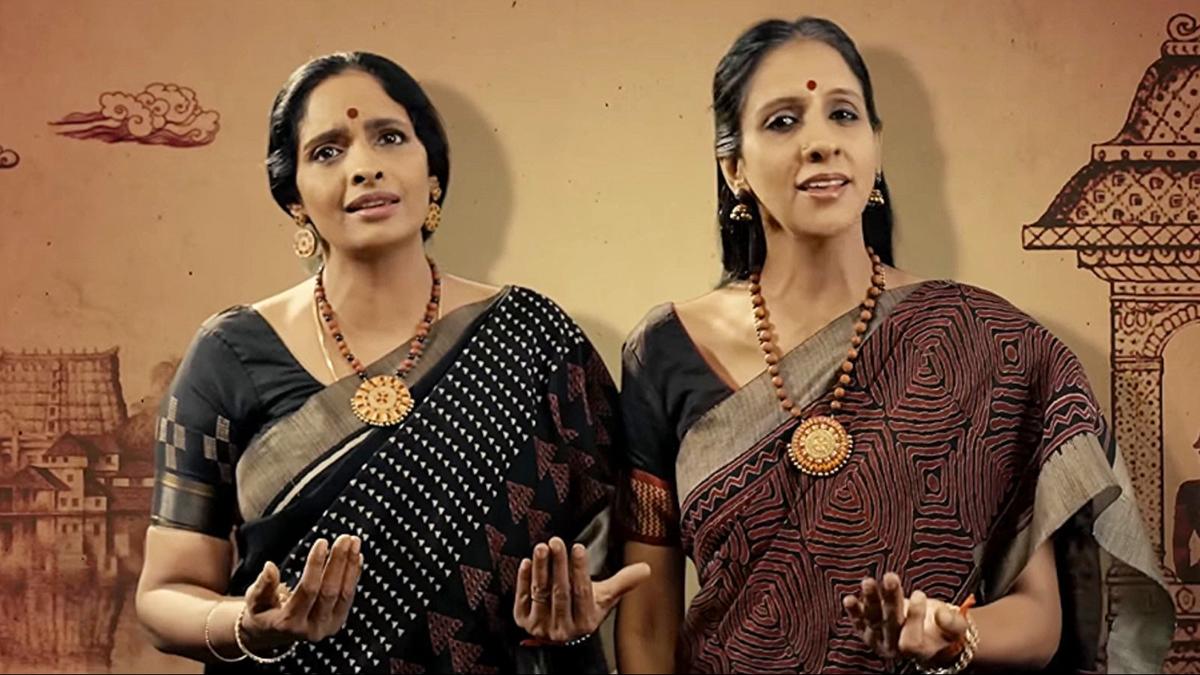
Composer M Jayachandran embarks on a project on Swathi Thirunal’s ‘padams’ in Manipravalam
The Hindu
Celebrating Swathi Thirunal's musical legacy with an 18-song series 'Swathi's Manipravalam' by composer M Jayachandran
As the musical legacy of Swathi Thirunal continues to be celebrated, composer-singer M Jayachandran has taken up an ambitious project — ‘Swathi’s Manipravalam’, an 18-song series on the king-composer’s padams (love poems) in Manipravalam, a literary language combining Malayalam and Sanskrit.
The first song in the series, ‘Kulirmathi vadane’, sung by Carnatic musicians Ranjani and Gayatri (RaGa) has been released. “It is the culmination of a dream. In the early 90s, before I started working in films, one of my uncles gave me a book by Chidambara Vadhyar with Swathi’s compositions. Brought out in 1916, it had padams, thillanas, kirtans, utsavaprabhandham etc written by Swathi Thirunal. I loved the padams, many of which we have never heard of. Of the lot, I loved ‘Kulirmathi vadane’ and wished I could tune it someday,” says Jayachandran.
As fate would have it, Chennai-based musician-turned-businessman, SR Gopakumar, approached him with the same idea four years ago. “Gopan has been like my younger brother. His idea was to bring out 18 padams and he was ready to produce the project. When I agreed to do one, to know how it goes, the padam he chose was ‘Kulirmathi vadane’ much to my surprise. It was as if the song has been chasing me all these years, waiting for me to become a better musician,” says Jayachandran, a multiple State film award-winning composer. A padam is usually about longing for an absent beloved, with poetic metaphors about the lover’s beauty.
Gopakumar first learned about padams while learning music from veteran K Omanakutty in Thiruvananthapuram. “She was doing her research on Kathakali padams at that time. Whenever I visited her home, I would hear these compositions and I loved their musicality and use of Manipravalam. When I moved from Thiruvananthapuram to Chennai, I was appalled that few artistes were singing Swathi’s compositions. That is when I decided to work on popularising his works,” Gopakumar recalls.
Once he found himself in a position to bring out such a project, he approached Jayachandran. “I felt that a composer of his calibre was needed to execute what I had in mind. He was extremely busy and I was not sure if he would take it up. But when sat down to discuss it we were surprised that we shared the same dream,” Gopakumar says.
Jayachandran took time to arrive at the composition. “We only knew that it was in Dhanyasi raga and Misra Chapu tala. I did a lot of research and listened to compositions in the raga. Since ragas evolve over the years, I composed it in a style that would have been current in Swathi’s period,” Jayachandran says.
The composer says that the Ranjani-Gayatri duo was his first choice for the rendition. “I have been a huge fan of their singing. Since the erstwhile kingdom of Travancore was close to Tamil Nadu, the language and culture had the region’s influence. I wanted that Tamil influence in the rendition as well and that was another reason to choose them,” Jayachandran says.

The Karnataka government has drafted a comprehensive master plan for the integrated development of Kukke Subrahmanya temple, the State’s highest revenue-generating temple managed by the Hindu Religious Institutions and Charitable Endowments Department. The redevelopment initiative is estimated to cost around ₹254 crore and aims to enhance infrastructure and facilities for devotees.












